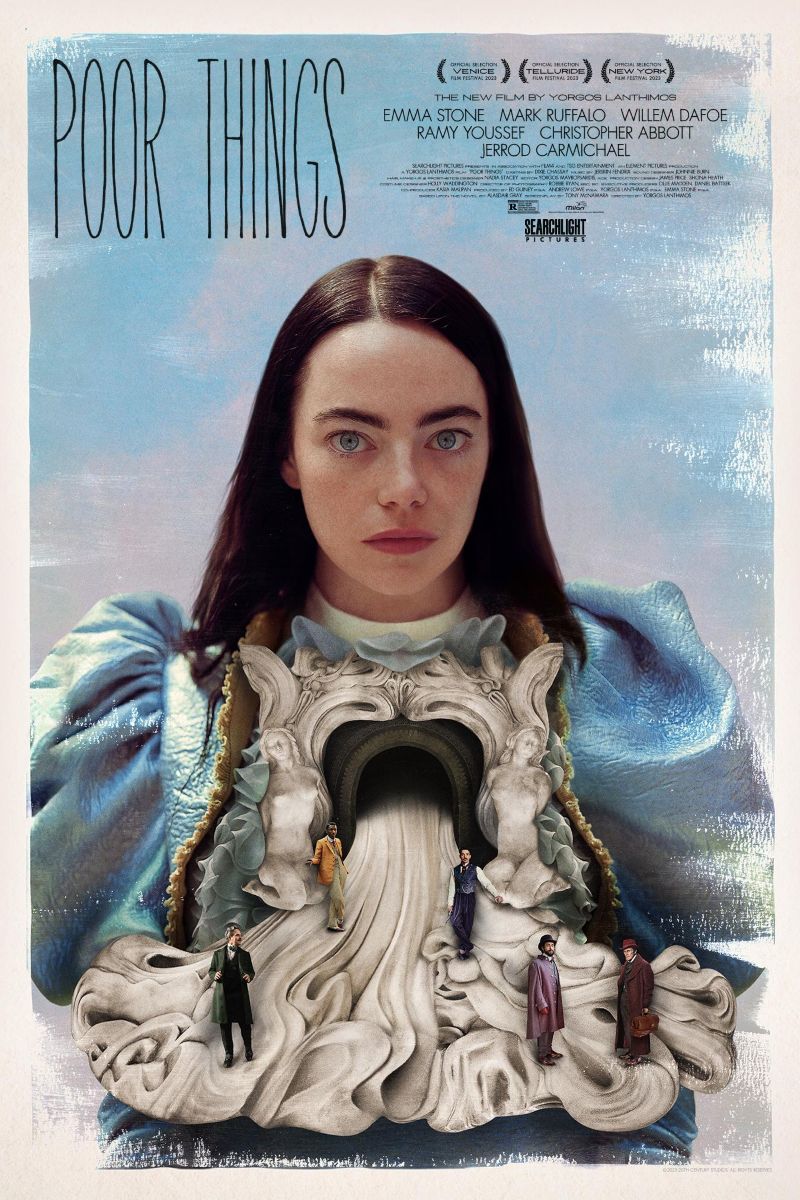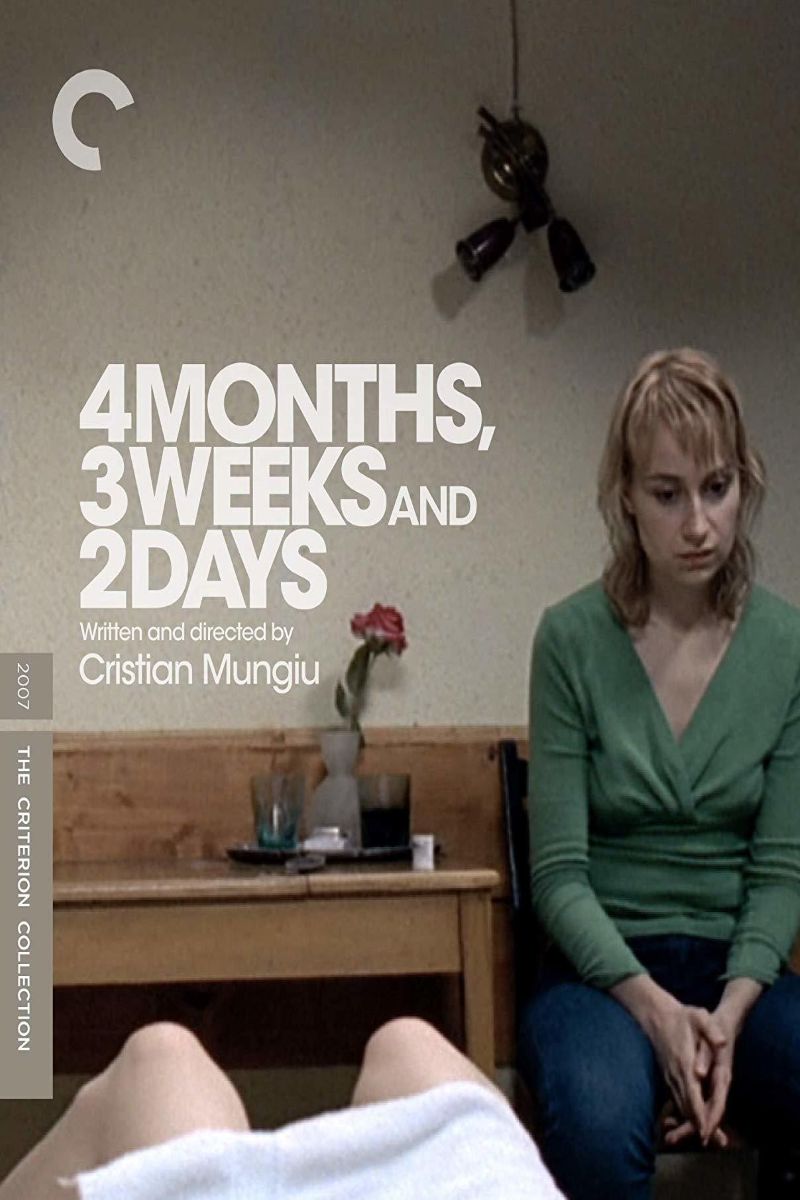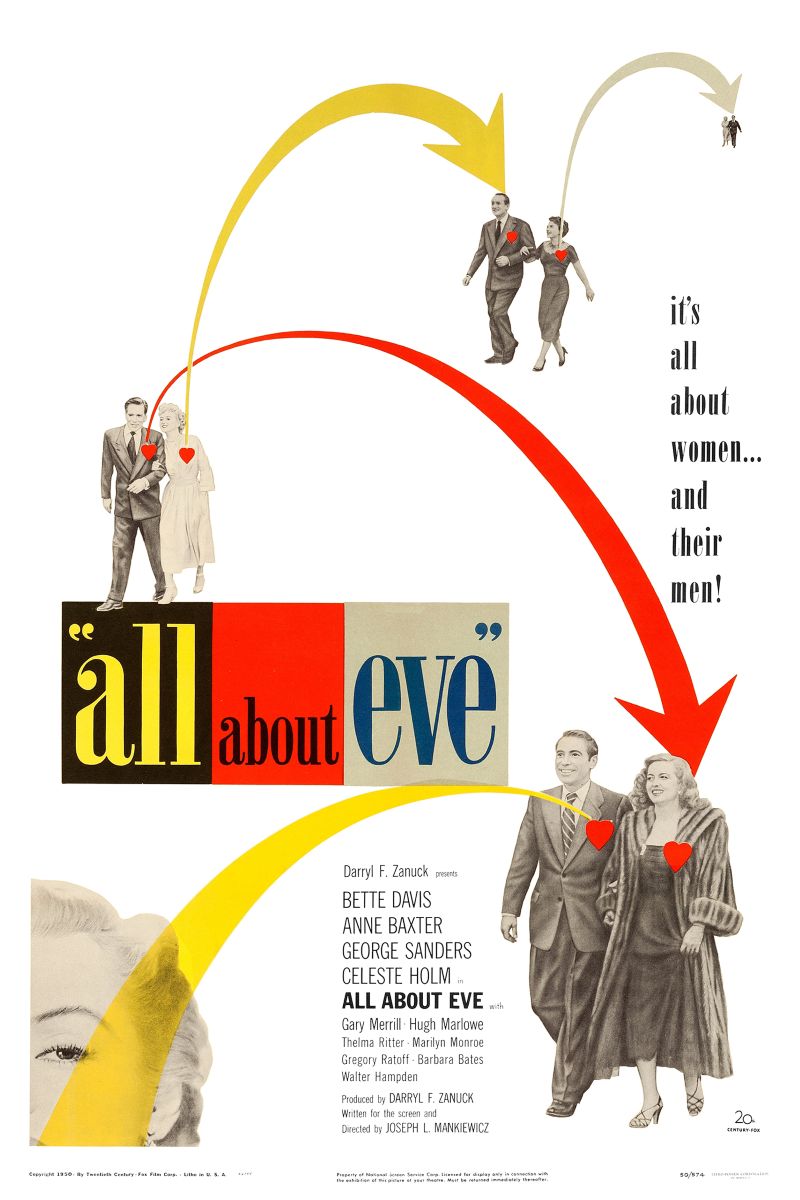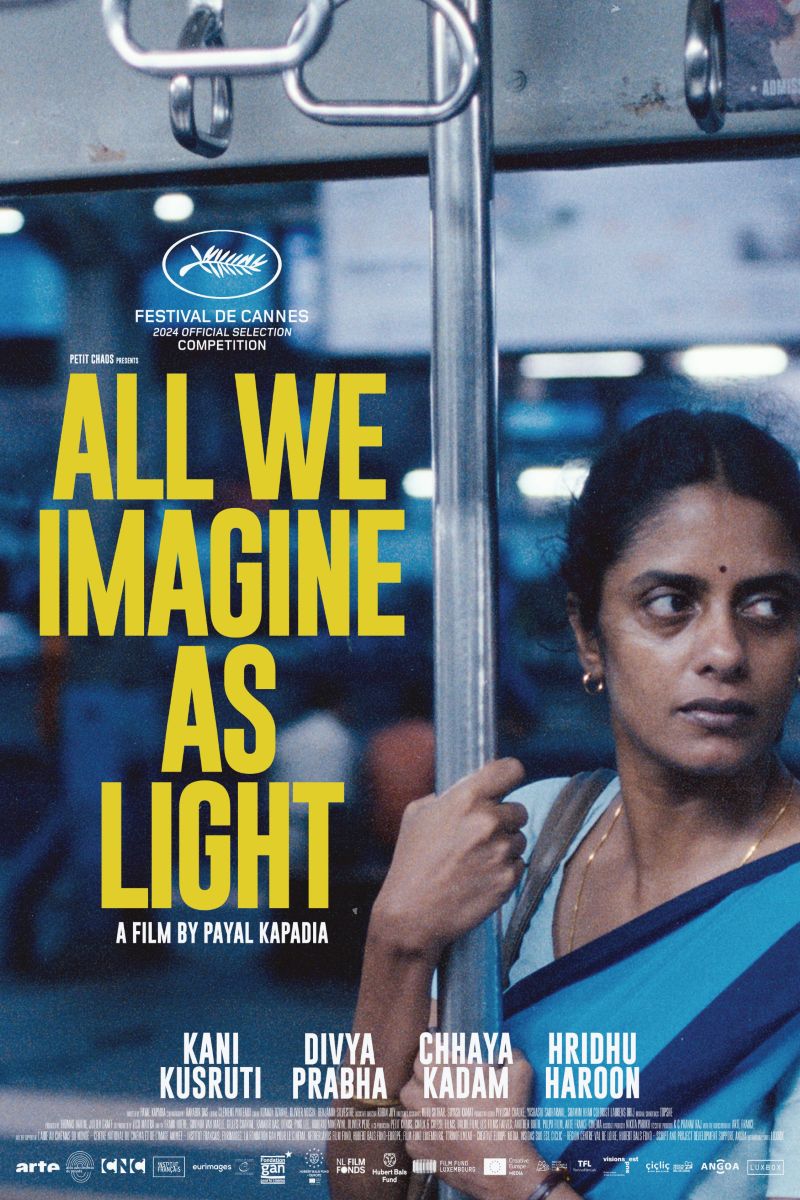
Poor Things
Poor Things
A surrealist fantasy drama directed by Yorgos Lanthimos and starring Emma Stone. Adapted from Alasdair Gray's novel, it follows the extraordinary evolution journey of Bella Baxter, a young woman brought back to life through brain transplantation in Victorian times. The film explores profound themes of female sexual autonomy, body politics, social liberation, and personal awakening through richly imaginative visual language, becoming a significant representative work of contemporary feminist cinema.
主演
🎥 影评与解读
Poor Things stands as director Yorgos Lanthimos’s ambitious follow-up to his collaboration with Emma Stone in The Favourite, a surrealist fantasy adapted from Alasdair Gray’s novel that boldly explores core feminist issues of female sexual autonomy, bodily liberation, social constraints, and individual awakening through the extraordinary journey of Bella Baxter (Emma Stone), a resurrected woman. With its stunning visual imagination and uncompromising narrative courage, the film represents one of the most radical and profound explorations of female subjectivity in contemporary cinema.
From the perspective of female desire and sexual autonomy, Poor Things’ most revolutionary contribution lies in its direct, honest, and unvarnished presentation of female sexual pleasure. Beginning as a “blank slate” existence with an adult woman’s body but an infant’s mind, Bella gradually discovers and embraces her sexuality and bodily pleasure. This discovery process is free from shame, moral baggage, and based entirely on instinct and curiosity. Through Bella’s experience, the film challenges society’s long-standing suppression and stigmatization of female sexual desire, presenting a pure female sexual subjectivity untainted by social conditioning.
The film’s exploration of bodily autonomy carries profound political significance. Bella’s body serves both as the product of scientific experimentation and as the vehicle for her self-discovery and liberation. She refuses to become an object of others’ desires, whether Dr. Godwin Baxter’s (Willem Dafoe) paternalistic protection or Duncan Wedderburn’s (Mark Ruffalo) possessive love. Bella insists on complete control over her body, including the right to choose sexual encounters, freedom of movement, and the right to self-definition. This assertion of bodily autonomy holds important contemporary relevance in debates about reproductive rights, sex work rights, and bodily integrity.
From a sexual liberation perspective, the film presents a sexual worldview that transcends traditional moral frameworks. Bella’s sexual exploration is unconstrained by traditional monogamy, gender role expectations, or social taboos. She chooses sexual partners based on her own desires and curiosity, unbound by romantic love mythology. When she becomes a sex worker, the film presents this as her autonomous choice rather than degradation or victimization. This demoralized sexual portrayal challenges traditional cultural binary oppositions between female “purity” and “degradation.”
The film’s visual language itself constitutes a form of feminist expression. Lanthimos creates a surreal Victorian world where architecture, costumes, and props carry strong symbolic significance. Bella’s costume evolution—from conservative long dresses to boldly revealing modern clothing—visually presents her liberation process. The film’s color usage is also significant: gradually transitioning from initial monotonous gray to a richly colorful world, symbolizing Bella’s consciousness awakening and worldview expansion.
From a feminist psychology perspective, Bella’s growth process can be understood as an idealized model of female subjectivity development. Having not been shaped by traditional gender socialization processes, she can explore her identity and desires in a “primitive” state. This growth trajectory challenges Freudian theories about female psychological development, particularly concepts of “penis envy” and women as “lacking males.” Bella’s psychological development is entirely self-centered, independent of male identification or external validation.
The film’s critique of Victorian society carries profound historical significance. By placing a woman with modern consciousness in a 19th-century social environment, the film reveals traditional society’s systematic suppression of women’s freedom. The various restrictions Bella encounters—from freedom of movement to sexual expression—reflect real constraints women have faced historically. Simultaneously, the film suggests these constraints still exist in contemporary society, merely in more concealed forms.
Emma Stone’s performance is the film’s central force. She successfully presents Bella’s complete transformation from an infant-like state to mature womanhood. This performance is not only technically challenging but politically radical. Stone refuses to romanticize or sentimentalize Bella’s sexual expression, instead presenting the complexity and diversity of female sexuality in a direct, frank manner.
The film’s treatment of male characters is also interesting. Whether paternalistic Godwin, possessive Duncan, or gentle Max (Ramy Youssef), none can truly understand or control Bella. She transcends their expectations and understanding, becoming a truly independent being. This deconstruction of male authority reveals power imbalances in traditional gender relationships.
From a cultural critique perspective, the film delivers sharp satire of capitalism and class society. The poverty and inequality Bella witnesses during her travels leads her to question the rationality of social structures. She ultimately chooses to use her wealth to help others, embodying a sense of social responsibility that transcends personal interests. This awakening process connects personal liberation with social justice, reflecting the intersection of feminism and socialism.
The film’s science fiction elements provide a unique framework for feminist thinking. By “recreating” a woman, the film explores the constructed nature of gender identity. Bella’s identity is not biologically determined but formed through experience and choice. This setting supports gender performativity theory and social constructionist views, challenging biological essentialist gender concepts.
The film’s treatment of sex work deserves particular attention. Bella’s choice to become a sex worker stems not from desperation or coercion but from curiosity and the need for economic independence. The film avoids moral condemnation or victim narratives about sex work, instead presenting it as a way for Bella to explore the world and herself. This treatment aligns with sex worker rights advocates’ perspectives, emphasizing sex workers’ agency and choice.
From an artistic expression perspective, the film’s surrealist style serves its feminist themes. Exaggerated sets, strange creatures, and absurd plots create a space where women can freely express and experiment. This fantasy world temporarily suspends real-world constraints, allowing audiences to imagine possibilities free from gender oppression.
The film’s ending is particularly important. Bella ultimately chooses to return to Godwin, but this is not submission or retreat but the autonomous choice of a mature individual. Having undergone a complete process of self-discovery, she can now establish relationships based on love and choice rather than dependence or fear. Her treatment of her former husband—transforming him into a goat—symbolically demonstrates her reckoning with past oppression and control over the future.
The film’s absence of traditional motherhood is also worth considering. Bella’s creation bypasses traditional mother-daughter relationships, receiving life directly from “father” Godwin. This setting avoids complex dynamics in traditional mother-daughter relationships, allowing Bella to explore female identity in a relatively “pure” state. Meanwhile, her later attitude toward pregnancy—neither fearful nor romanticized—embodies a demystified view of reproduction.
From a philosophical perspective, the film engages with questions of consciousness, identity, and free will that are central to feminist thought. Bella’s unique origin story allows the film to explore what it might mean to develop female consciousness without the burden of patriarchal conditioning. Her journey becomes a thought experiment about the possibilities of unencumbered female subjectivity.
The film’s treatment of class and economic justice adds another layer to its feminist politics. Bella’s evolution from wealthy naiveté to social consciousness mirrors many feminist awakenings that connect personal liberation to broader social justice concerns. Her decision to study medicine and help others represents the film’s vision of empowered femininity as inherently connected to social responsibility.
Ultimately, Poor Things’ value lies in its extreme exploration and bold imagination of female subjectivity. Through the “impossible” character of Bella, the film shows us possibilities for female existence that transcend existing social constraints. It serves both as an indictment of historical female oppression and as a vision of future female liberation. In a world still full of gender inequality and bodily regulation, such radical and imaginative works provide important opportunities for rethinking gender, power, and freedom.
🏆 获奖与荣誉
- • 威尼斯电影节 金狮奖
- • 奥斯卡奖 最佳女主角
- • 奥斯卡奖 Best Production Design
- • 奥斯卡奖 Best Costume Design
- • 奥斯卡奖 Best Makeup and Hairstyling
⭐ 评分与链接
相关推荐
评论与讨论
与其他观众一起讨论这个视频
加入讨论
与其他观众一起讨论这个视频
评论加载中...



